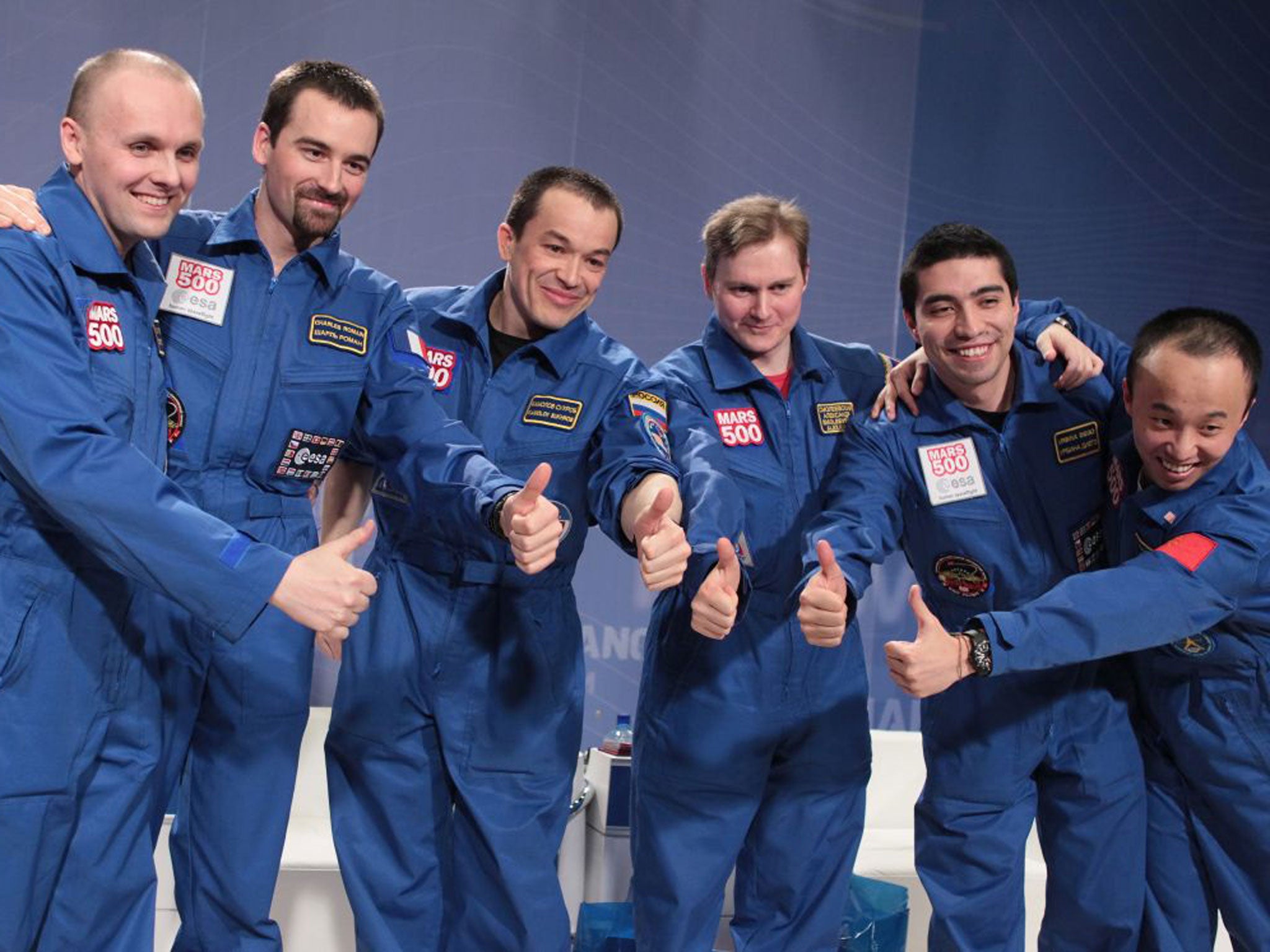The main problem for a manned Mars mission? Sleep deprivation
Research reveals physical and psychological challenges of sending astronauts to Red Planet

Getting sleep will be one of the biggest challenges facing astronauts in any future manned mission to Mars, according to a study of six men who spent 520 days and nights in a confined "spacecraft" during a simulated trip to the planet.
The Mars500 project began on 3 June 2009 when three Russians, an Italian, a Frenchman and a Chinese man entered a sealed experimental facility in Moscow without access to natural light, fresh air or direct face-to-face contact with any other human being.
For the next 18 months they carried out a battery of daily duties to simulate a return mission to Mars, with a 30-day interlude in the middle where they were allowed to explore another enclosed area designed to simulate the surface of the red planet.
A study into how each man coped with the psychological and physical constraints of the mission has found that there were wide differences in their wake-sleep patterns.
One man's circadian rhythm shifted from a 24-hour period to a 25-hour period, which meant that on every 12th day his body was telling him that it was midnight at the same time that it was midday for everyone else.
And while most of the crew began to sleep for longer periods as the mission progressed and boredom set it, one individual slept progressively less, until towards the end of the mission he had become chronically sleep-deprived.
"One of the biggest surprises was the huge individual differences in how they coped with sleep," said Mathias Basner, a sleep researcher at the University of Pennsylvania in Philadelphia. "There was just one member of the crew who was the sort of astronaut we would probably be looking for in terms of sleeping behaviour. He was very active during the day and slept well at night."
Identifying bad sleepers could be important on a real Mars mission that requires people to be constantly alert even when the days are tediously similar, Dr Basner said. Sleep will be crucial to any future mission to Mars because it will require people to spend a long time together in a confined space without any natural cues for when it is day or night.
"The success of human interplanetary spaceflight... will depend on the ability of astronauts to remain confined and isolated from Earth much longer than previous missions or simulations," said David Dinges of Pennsylvania University.
"This is the first investigation to pinpoint the crucial role that sleep-wake cycles will play in extended space missions," said Dr Dinges, a co-author of the study published in the Proceedings of the National Academy of Sciences.
The Mars500 project, run by the Institute for Biomedical Problems in Moscow and partly funded by the European Space Agency, attempted to address a range of psychological and physical issues associated with extended space missions.
Professor Gro Sandal, a psychologist at the University of Bergen in Norway who looked at relationships between the crew members, said there was an overall harmony within the group despite some personal tensions.
"There are always going to be tensions when people live together in a confined space for a long period of time," Professor Sandal said. "In a mission like this it is important to maintain motivation and concentration. Monotony and boredom may be the biggest stressors on any mission to Mars, exciting as it may seem."
Join our commenting forum
Join thought-provoking conversations, follow other Independent readers and see their replies
Comments
Bookmark popover
Removed from bookmarks